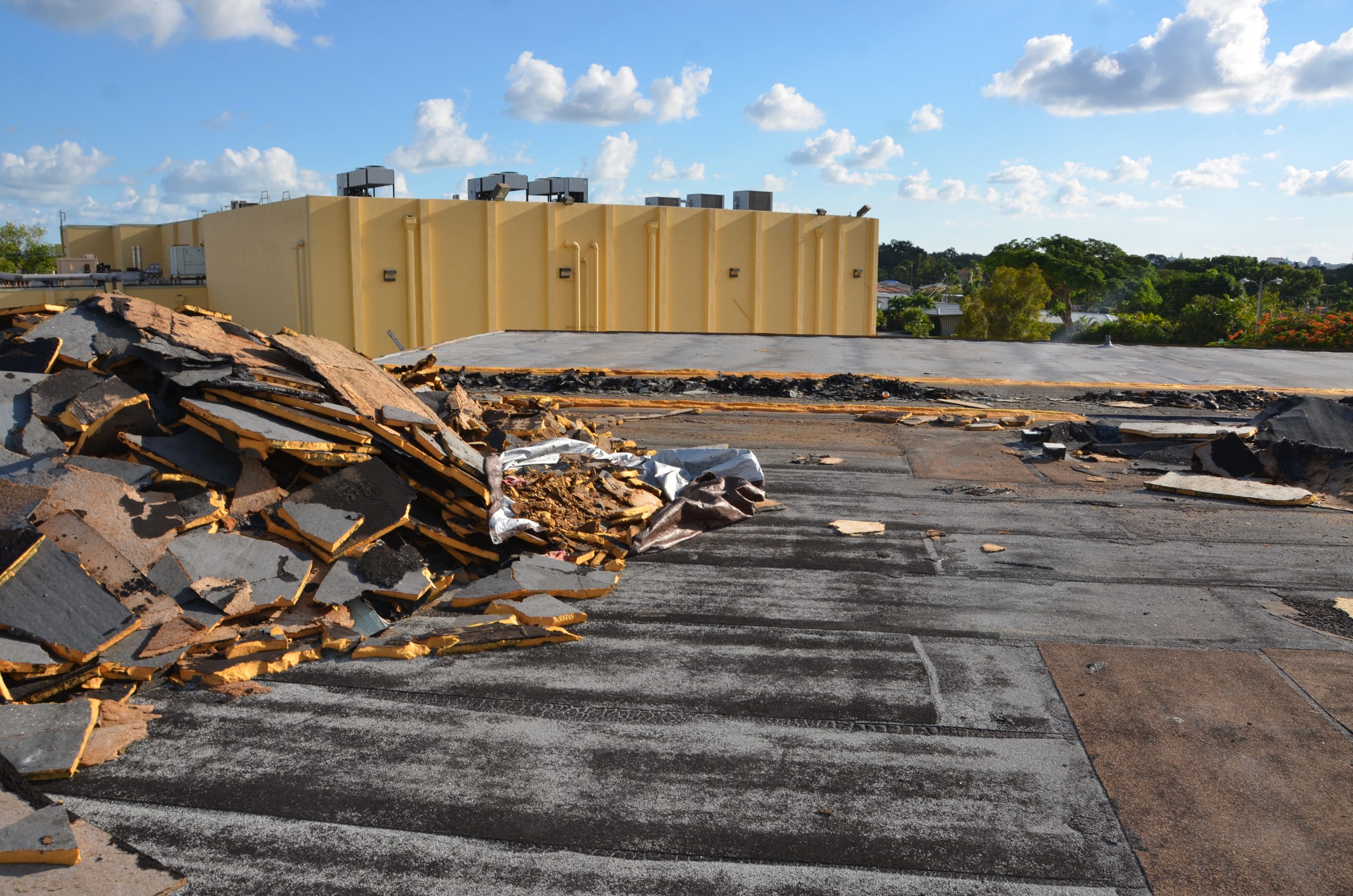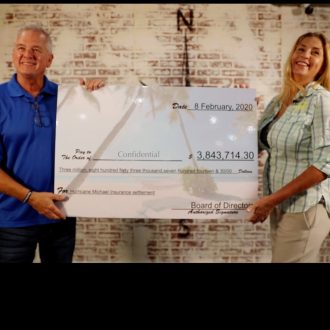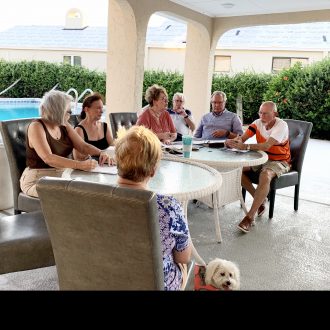
Warehouse Building Damages Claim
Public Adjusters

FLORIDA COMMUNITY ASSOCIATION JOURNAL BEST PUBLIC ADJUSTERS ● 2021, 2022, 2023
Warehouse Building

Large Warehouse spaces are impacted by pressure deviations from storms differently than other types of buildings. Our expertise in flat roof systems investigations, combined with our understanding of business interruption coverages available, is crucial to a maximum claim recovery.
Why Hire an Expert Public Adjuster?
Stone Claims Group Private Adjusters Handle your Warehouse Building Claim

We Handle The Headache

We Maximize Your Settlement

We Get Paid When You Get Paid

We Have The Policyholder's Interests In Mind
Type Of Warehouse Buildings Damages We Cover
Get the Best Settlement for Your Warehouse Building Claim
Don't Leave any Money on the Table



Bring us your claim
Complete a Thorough Inspection & Claims Package
Settle at a Higher Rate
Warehouse Buildings We Have Helped
Please take a moment to review some of our results, and some of the many clients we have helped throughout the years
Areas We Serve
Licensed And Trusted in 18 States
112
Hail events
696
Wind events
370
Hurricane & flooding events
57
Tornado events
77
Lightning events
79
Hail events
727
Wind events
762
Hurricane & flooding events
15
Tornado events
20
Lightning events
627
Hail events
347
Wind events
119
Hurricane & flooding events
57
Tornado events
7
Lightning events
20
Hail events
84
Wind events
185
Hurricane & flooding events
2
Tornado events
6
Lightning events
112
Hail events
696
Wind events
370
Hurricane & flooding events
57
Tornado events
77
Lightning events
161
Hail events
945
Wind events
221
Hurricane & flooding events
147
Tornado events
31
Lightning events
176
Hail events
325
Wind events
289
Hurricane & flooding events
103
Tornado events
16
Lightning events
63
Hail events
576
Wind events
571
Hurricane & Flooding events
7
Tornado events
6
Lightning events
209
Hail events
556
Wind events
244
Hurricane & flooding events
147
Tornado events
18
Lightning events
741
Hail events
563
Wind events
320
Hurricane & flooding events
46
Tornado events
5
Lightning events
66
Hail events
498
Wind events
259
Hurricane & flooding events
9
Tornado events
13
Lightning events
113
Hail events
1318
Wind events
293
Hurricane & flooding events
13
Tornado events
24
Lightning events
291
Hail events
839
Wind events
503
Hurricane & flooding events
51
Tornado events
19
Lightning events
653
Hail events
632
Wind events
547
Hurricane & flooding events
171
Tornado events
4
Lightning events
24
Hail events
156
Wind events
58
Hurricane & flooding events
4
Tornado events
1
Lightning event
289
Hail events
1334
Wind events
537
Hurricane & flooding events
37
Tornado events
12
Lightning events
158
Hail events
707
Wind events
370
Hurricane & flooding events
54
Tornado events
16
Lightning events
225
Hail events
848
Wind events
223
Hurricane & flooding events
40
Tornado events
24
Lightning events
1394
Hail events
1448
Wind events
1277
Hurricane & flooding events
258
Tornado events
38
Lightning events
207
Hail events
1281
Wind events
1305
Hurricane & flooding events
33
Tornado events
16
Lightning events
*Source for each damage type comes from NOAA. Year of damage types vary from 2015 - 2020.
What Our Clients Are Saying
Unmatched Expertise at Stone Claims Group

“Dealing with Stone Claims Group was one of the most rewarding experiences I’ve had as a board member. Not only did they deliver monetarily in a huge volume for our association, but they also brought an unmatched expertise and professionalism.”
R. Holland, BOD President
Jacksonville, FL


“I just want to thank you for all you did for owners at Top of the Gulf. As you must have known I was one of the biggest skeptics. Thank you for changing my mind. I admire the way you never let up and continued to come by and tell us why we needed your company. Thank you again for persistence, we would have been in poor shape if everyone was like me.”
C. Jordan Board Member
Florida Panhandle

Warehouse Buildings FAQS
What certificates or licenses do you need to be an insurance claim appraiser?
There are no official requirements for these positions. There are Certification and Credential programs for Umpires and Appraisers. Still, their selection is primarily based on prior Umpire and Appraiser experience and their knowledge about the type of property damages in dispute. The use of appraisal to resolve insurance disputes has grown extensively.
What is the difference between Appriasal and Lawsuit?
Appraisal is a clause or option written into most commercial insurance policies.
Appraisal vs. Lawsuit
|
Appraisal |
Lawsuit |
|
Quick – Expedient |
Slower – protracted |
|
Relatively less costly |
Generally more costly |
|
Less adversarial |
More adversarial |
|
No appellate potential |
Appeal is possible |
|
Must pay fees/costs |
May recover fees/costs |
|
No firm procedure |
Strict procedures |
What is the Appraisal process?
The Appraisal process:
-
Failure to agree as to the actual cash value or the amount of loss.
-
Upon written request of either, each party shall select a competent and disinterested appraiser and notify the other of the appraiser selected within 20 days.
-
The appraisers shall first select a competent and disinterested umpire.
-
Failing for 15 days to agree upon the umpire, the umpire shall be selected by a judge of a court of record in the state in which the property covered is located.
-
Appraisal proceedings are informal.
- No formal discovery shall be conducted, including depositions, interrogatories, requests for admission; other forms of formal civil discovery.
- No formal rules of evidence shall be applied.
- No court reporter shall be used for the proceedings.
- The appraisers shall then appraise the loss, stating separately:
a) Actual cash value.
b) Loss to each item. - Appraisers submit their differences only to the umpire.
- An award in writing, itemized, of any two when filed with the insurance company shall determine the amount of actual cash value and loss.
How much does an insurance appraisal cost?
The cost of the appraisal process, mediation, or arbitration is usually significantly lower than filing litigation in court, but the costs must be paid upfront and from your funds with no guarantee of the outcome. The cost is usually determined by the hours it takes the adjuster to inspect and write the report or based on the square footage of the home or business.
The fee that an appraiser charges you must be a set fee. This means that the appraiser can’t charge you based on the amount of the estimate or the amount of the claim settlement. They must be an “uninterested” third party and their fee can’t be based on the outcome of the settlement.
Who pays for the appraiser?
It is important to note that, should you go into “appraisal” for the cost of the repairs, you must spend the money for your appraiser and half the cost of the umpire out of your pocket, and that there are no guaranteed results.
Payment
-
Each appraiser shall be paid by the party selecting him or her.
-
Expenses of appraisal shall be paid by the parties equally.
-
The Umpire shall be paid by the parties equally.
How to choose the right appraiser for your insurance claim.
When hiring an appraiser for a claim, you want to make sure you use an adjuster or an appraiser for insurance claims. Public Adjusters are an excellent source for your appraisal needs. They tend to have vast experience in correctly assessing damages and considering city/code upgrades and hidden damages.
Your state board for insurance adjusters can be the right place to start, and most states also have an association of public adjusters that usually have very high standards and skillsets. The Insurance Appraisal and Umpire Association directory provides lists of certified professionals by state. There is also a National Association of Public Adjusters with a list of adjusters that are likely close to your home or business.
How do I demand an appraisal for my property damage claim?
The appraisal language in your policy most likely requires that a demand for appraisal must be in writing. Usually, the language also addresses certain time limits for naming appraisers and umpires, how the appraisal is to be accomplished, who pays the costs of appraisal, and the appointment of an umpire.
The appraisal language in your policy most likely requires that a demand for appraisal must be in writing. Usually, the language also addresses certain time limits for naming appraisers and umpires, how the appraisal is to be accomplished, who pays the costs of appraisal, and the appointment of an umpire. Additionally, insurers sometimes use a written memorandum of appraisal for the appraiser and/or umpire to sign. The memorandum often includes the property damaged, the date of loss, the cause of the loss, and sometimes an oath for the appraiser to sign. The typical policy language does not mandate any memorandum of appraisal.
The Law Regarding Appraisal
Appraisal is not arbitration.
1. In theory, appraisal is to be used to provide a simple, speedy, inexpensive, and fair method of determining the amount of loss only.
2. If a lawsuit is filed, and one party properly demands appraisal, abatement is not required.
3. If appraisal is properly invoked, carried out, and awarded, the amount of loss is binding on the insurer and the insured.
4. Appraisal clauses were traditionally inserted for the insurer’s benefit and may be waived. However, either the insurer and/or the insured may invoke appraisal. The insurer “will not be permitted to use this clause oppressively, or in bad faith.” Insurance Serv. Co. v. Brodie, 337 S.W.2d 414–417 (Tex. Civ. App.— Fort Worth 1960, writ ref’d n.r.e.). Absent agreement between the parties, appraisal has customarily been used to determine the amount of loss only.
5. Until recently, appraisers and umpires have had no authority or power in an appraisal to determine “questions of causation, coverage, or liability …” However, the Supreme Court’s 2009 opinion in State Farm Lloyd’s v. Johnson, 290 S.W.3d 886 (Tex. 2009), has slightly altered this approach.
What do you do if the insurance company demands appraisal?
The appraisal language in a policy typically reads as follows. You will need to find and hire an Appraiser to represent your case in the disburse of cost to repair or replace.
Appraisal. If you and we fail to agree on the actual cash value, amount of loss, or cost of repair or replacement, either can make a written demand for appraisal. Each will then select a competent, independent, appraiser and notify the other of the appraiser’s identity within 20 days of receipt of the written demand. The two appraisers will choose an umpire. If they cannot agree upon an umpire within 15 days, you or we may request that the choice be made by a judge of a district court of a judicial district where the loss occurred. The two appraisers will then set the amount of loss, stating separately the actual cash value and loss to each item.
When you and the insurance company disagree on the cost to repair or replace your damaged items, many insurance policies have what is called a “Mandatory Appraisal Clause”. This means that your right to file a lawsuit is delayed (or wholly denied) unless you first comply with your policy’s appraisal clause.
The appraisal goal is simple: the insurance company wants to make sure they know what they are paying for and that it is actually necessary for all of the charges to be paid so that you are fully indemnified for your loss.
The insurance company most often directs an insurance appraisal process. Once they notify you that they are not going to pay the amount you need to repair or replace your damaged items, they will usually notice that you must go through the appraisal process for any further payments to be released. In this situation, you must act quickly. You have 20 days to hire an appraiser and your appraiser should be submitting his/her choice for the umpire. If the insurance company and the policy holder are unable to agree upon an umpire, one will be appointed for the process.
How does the court appoint an umpire?
If after 15 days, the two appraisers cannot agree on a choice of an umpire, most policies state that either party may request that the choice be made by a judge of a court of record in the state where the described location is located. Notice the policy may request that the choice be made by a judge. If the two appraisers want to continue to attempt to choose an umpire, there is nothing in the policy that would forbid it.
How do I choose an umpire for an insurance appraisal?
An umpire is selected and agreed upon by the two Appraisers and not by the Insurance Carrier or Insured.
A qualified umpire is a competent, disinterested, impartial individual chosen by the two appraisers or appointed by a judge and charged with the responsibility of evaluating the differences in the amount of the loss set by the two appraisers.
The two appraisers should attempt to agree on an umpire no later than 35 days after the initial demand of appraisal is received, or 15 days after the appraisers first begin the umpire selection process. Usually, both appraisers start this process by submitting a list of candidates they consider qualified. If one appraiser agrees to use an umpire off of the other appraiser’s list, the choice of umpire is usually set. I say usually because courts have ruled that the umpire must be competent and disinterested. It is commonly understood that the umpire has the responsibility to reveal to the two appraisers whether he is either partial or biased toward either the insurer, insured, or one of the appraisers. He should be transparent in revealing any past business dealings, employments, or on-going dealings with any of these named parties. If the umpire fails to make the appropriate disclosure and he/she is later accused of showing partiality during the appraisal process, it is possible that the appraisal process be brought under suspicion and the award overturned by the court.
If after 15 days, the two appraisers cannot agree on a choice of umpire, most policies state that either party may request that the choice be made by a judge of a court of record in the state of the described location. Notice the policies says “may request that the choice be made by a judge;” meaning that if the two appraisers want to continue to attempt to choose an umpire, there is nothing in the policy that would forbid it.
If the appraisers agree on selecting an umpire, it is expected that a Declaration of Appraisal, DOA, will be executed. This document will state who the appraisers chose for their umpire and sign their names and attest to the same. After the Declaration is signed, this document should then be sent to the umpire of choice. It is understood, that the umpire should then declare if he is not suitable to act in this capacity due to bias, perceived bias, or incompetence. If the umpire agrees to serve in this capacity, he will sign the DOA and return the signed copy to both parties. Once this process is finished, the two appraisers will schedule their joint inspection.
Can I appeal the umpire decision?
In most states, after a party receives notice of an appraisal award, the party may make a motion to the court to confirm the award. At this time, the court shall issue a confirming order unless the award is modified or corrected.
“If within fifteen (15) days from the date of the notice of challenge, all Parties do not agree to the challenge or the challenged umpire does not withdraw, the Party making the challenge may elect to pursue it if the challenge is based on: (1) the failure of the umpire to meet the requirements for umpire set forth in the relevant contract(s); (2) the failure of the umpire to meet the Neutral Criteria listed in 6.3(a) – 6.3(d) above; (3) a violation of the standards set forth in Comment 3 to Canon 1 of the ARIAS•U.S. Code of Conduct; or (4) the alleged failure to make adequate disclosures as required by Canon IV of the ARIAS•U.S. Code of Conduct. In that case, within fifteen (15) days of the notice of challenge, the Party making the challenge shall seek a decision on the challenge from a neutral three-member sub-committee made up exclusively of members of the ARIAS Ethics Committee and the Board of Directors (the “Sub-Committee”). The Party seeking such a decision shall do so by notifying the Executive Director, in writing, of its intention to seek a decision on the challenge from the Sub-Committee”.
Under Article 12 of the UNCITRAL Arbitration Rules, “any arbitrator may be challenged if circumstances exist which give rise to justifiable doubts as to the arbitrator’s impartiality or independence”. Here, the grounds for challenging an umpire through the protocol are limited to those enumerated in Rule 16.9(d).
The first two grounds involve failure of the umpire to meet the requirements set forth in the relevant contract or under the Neutral Criteria.
The third ground requires reference to Comment 3 to Canon 1 of the ARIAS-US Code of Conduct. As set forth in Comment 3, “The parties’ confidence in the arbitrator’s ability to render a just decision is influenced by many factors, which arbitrators must consider prior to their service. There are certain circumstances where a candidate for appointment as an arbitrator must refuse to serve…”. An example of such a circumstance, per Comment 3(a), is “where the candidate has a material financial interest in a party…”
The fourth ground is the failure to make adequate disclosures as required by Canon IV of the ARIAS-US Code of Conduct. Per Canon IV, “Candidates for appointment as arbitrators should disclose any interest or relationship likely to affect their judgment. Any doubt should be resolved in favor of disclosure”. Per Comment 2 to Canon IV, required disclosures include but are not limited to relevant positions taken in published works or in expert testimony, the extent of previous appointments as an arbitrator by either party, and any past or present involvement with the contracts or claims at issue.
The Potential Results of a Challenge
There are three likely outcomes that will result from a challenge – (1) the challenging party will prevail resulting in the replacement of the umpire; (2) the challenging party’s challenge will not be accepted, or; (3) the umpire will withdraw.
In terms of the mechanics of the challenge, Rule 16.9(e) of the Insurance Rules provides that a three-person Sub-Committee will be chosen at random by the Executive Director exclusively from the members of the ARIAS Ethics Committee and Board of Directors.
For a hearing on the papers, the associated fee is $5,000. If an in-person hearing is determined to be required, the associated fee is a daily rate of $2,400 plus reasonable costs and expenses. The Sub-Committee has discretion in how it decides the challenge. But it is charged with rendering a decision on the challenge within thirty (30) days of receiving the papers or completing a hearing on the merits.
Rules 16.9(i) and 16.9(j) of the Insurance Rules suggest that the three scenarios set forth above will be resolved as follows:
-
Where the challenger prevails, the challenging party shall be awarded its fees and costs, and the second-highest ranked umpire candidate will serve as the replacement umpire;
-
Where the challenger fails, the party opposing the challenge shall be awarded its fees and costs, and the umpire will remain in place; and
-
Where the umpire withdraws, the second-highest ranked umpire candidate will serve as the replacement arbitrator.
The Challenge of Challenges
The drafting of the challenge provision was an attempt to provide parties acting in good faith with a fair and efficient challenge process while at the same time deterring mischievous parties from using frivolous challenges as a tool for obstruction and delay. While actual challenges under the Insurance Rules will undoubtedly test the procedure, its mere presence advances the Insurance Rules as a valuable tool for the resolution of direct insurance and insurance-related contract disputes.
Referenced from http://arbitrationblog.kluwerarbitration.com/author/peter-halprin/
However, there are a few exceptions to note. In most states, an appraisal award can be voided in the event of any of the following circumstances:
-
The appraisal award was made without the proper authority
-
The appraisal award did not comply with the requirements of the insurance policy
-
The appraisal award was made as a result of a mistake, accident or fraud
Thus, if your appraisal award seems off, it is important you collect as much information as possible and how the panel decided on the value it did. This can be easier said than done, as appraisal panels are not always transparent in their methods. However, if your appraiser has any notes on the deliberations made by the panel or any other correspondence that could be useful to you, reach out and see if you can make use of it.
Is the umpire decision final?
That is the intent. The general rule is that once the umpire has issued a final award, the umpire lacks any continuing power to revise the award or issue a new one. The Umpire’s decision becomes binding only by a majority agreement (2 of 3).
Umpire and Appraiser qualification requirements.
There are no official requirements for these positions. There are Certification and Credential programs for Umpires and Appraisers. Still, their selection is primarily based on prior Umpire and Appraiser experience and their knowledge about the type of property damages in dispute. The use of appraisal to resolve insurance disputes has grown extensively. Persons who act as Umpires, therefore, undertake serious responsibilities to the public, as well as to the parties. Those responsibilities include important ethical obligations.
ETHICAL RULES FOR UMPIRES IN INSURANCE APPRAISALS
These ethical rules shall be effective as of February 5, 2020.
The Windstorm Insurance Network has committed to upholding the highest ethical standards for professionals in the insurance industry, hereby adopts the following ethical rules for umpires who have completed the Wind Umpire Certification course and who actively engage in the appraisal process as an umpire.
An Umpire shall:
-
Be a neutral party.
-
Have no financial interest in any involved property or the outcome of the appraisal.
-
Disclose any previous business relationship with any party, appraiser, or attorney retained by a party.
-
Promptly disclose any potential conflict of interest before accepting an assignment as an umpire, and notify the parties immediately if a conflict or potential conflict arises during the appraisal proceedings.
-
Not accept any assignment that he or she is not certain he or she is qualified to handle.
-
Confirm any fee arrangement with the parties in writing.
-
Confirm the issues to be addressed in the appraisal in writing with the parties.
-
Agree to inspect the property if requested to do so by either appraiser.
-
Maintain impartiality and neutrality throughout the appraisal process and uphold the integrity of the proceedings.
-
Share all communications with all members of the appraisal panel throughout the appraisal proceedings.
-
Be responsible to proceed diligently to conclude the appraisal proceedings.
-
Retain only unbiased, qualified, and impartial experts.
-
Inquire of any retained expert as to any potential conflict of the expert.
-
Evaluate completely all presented facts and claims.
-
To the best of his or her ability, follow the law of the jurisdiction of the property.
-
Withdraw from the proceedings if a conflict arises, and the conflict is not waived in writing by all parties after notice to the parties of the conflict.
-
Not withhold signature on any appraisal award until payment for services is received.
-
Maintain records in good order during the appraisal process in accordance with any applicable rules or guidelines for preservation once the matter is concluded.
-
Keep true and accurate records of time, expense, and fee billings.
-
Keep an updated list of all properties and parties for which he or she served as an umpire for a period of seven (7) years.
-
Maintain and keep current all applicable professional licenses and continuing education requirements.
-
Be truthful and accurate in all marketing or advertising activities.
Copyright ® Windstorm Insurance Network, Inc.
Umpire Certification
CHAPTER I: AN UMPIRE SHOULD UPHOLD THE INTEGRITY AND FAIRNESS OF THE APPRAISAL PROCESS.
A. An Umpire has a responsibility not only to the parties but also to the process of the appraisal itself. They must observe high standards of conduct so that the process’s integrity and fairness will be preserved. Accordingly, an Umpire should recognize a responsibility to the public, to the parties whose rights will be decided, and to all other participants in the proceeding.
B. One should accept appointment as an umpire only if fully satisfied:
(1) that he or she can serve impartially;
(2) that he or she can serve independently from the parties, potential witnesses, and the appraisers;
(3) that he or she is competent to serve; and
(4) that he or she can be available to commence the appraisal in accordance with the requirements of the proceeding and thereafter to devote the time and attention to its completion that the parties are reasonably entitled to expect.
C. After accepting an appointment and while serving as an Umpire, a person should avoid entering into any business, professional, or personal relationship, or acquiring any financial or personal interest, which is likely to affect impartiality or which might reasonably create the appearance of partiality. For a reasonable period of time after the decision of a case, persons who have served as Umpires should avoid entering into any such relationship, or acquiring any such interest, in circumstances which might reasonably create the appearance that they had been influenced in the appraisal by the anticipation or expectation of the relationship or interest. Existence of any of the matters or circumstances described in his paragraph C does not render it unethical for one to serve as an Umpire where the parties have consented to the Umpire’s appointment or continued services following full disclosure of the relevant facts in accordance with Chapter II.
D. Umpires should conduct themselves in a way that is fair to all parties and should not be swayed by outside pressure, public clamor, and fear of criticism or self-interest. They should avoid conduct and statements that give the appearance of partiality toward or against any party.
E. An Umpire should conduct the appraisal process so as to advance the fair and efficient resolution of the matters submitted for decision. An Umpire should make all reasonable efforts to prevent delaying tactics, harassment of parties or other participants, or other abuse or disruption of the appraisal process.
F. Once an Umpire has accepted an appointment, the umpire should not withdraw or abandon the appointment unless compelled to do so by unanticipated circumstances that would render it impossible or impracticable to continue. When an Umpire is to be compensated for his or her services, the Umpire may withdraw if the parties fail or refuse to provide for payment of the compensation as agreed. Umpires do not contravene this Chapter if, by virtue of such experience or expertise, they have views on certain general issues likely to arise in the appraisal, but an Umpire may not have prejudged any of the specific factual determinations to be addressed during the appraisal. During an appraisal, the Umpire may engage in discourse with the parties or their counsel, draw out arguments or contentions, comment on the law or evidence, make interim rulings, and otherwise control or direct the appraisal. These activities are integral parts of an appraisal.
CHAPTER II: AN UMPIRE SHOULD DISCLOSE ANY INTEREST OR RELATIONSHIP LIKELY TO AFFECT IMPARTIALITY OR WHICH MIGHT CREATE AN APPEARANCE OF PARTIALITY.
A. Persons who are requested to serve as Umpires should, before accepting, disclose:
(1) any known direct or indirect financial or personal interest in the outcome of the appraisal;
(2) any other matters, relationships, or interests which they are obligated to disclose by the agreement of the parties, the rules or practices of an institution, or applicable law regulating umpire disclosures.
B. Persons who are requested to accept appointment as Umpire should make a reasonable effort to inform themselves of any interests or relationships described in paragraph A.
C. The obligation to disclose interests or relationships described in paragraph A is a continuing duty which requires a person who accepts appointment as an arbitrator to disclose, as soon as practicable, at any stage of the appraisal, any such interests or relationships which may arise, or which are recalled or discovered.
D. Disclosure should be made to all parties unless other procedures for disclosure are provided in the agreement of the parties, applicable rules or practices of an institution or by law.
CHAPTER III: AN UMPIRE SHOULD AVOID IMPROPRIETY OR THE APPEARANCE OF IMPROPRIETY IN COMMUNICATING WITH PARTIES.
A. An Umpire or prospective Umpire should not discuss a proceeding with any party in the absence of any other party, except in any of the following circumstances:
(1) When the appointment of a prospective Umpire is being considered, the prospective Umpire:
(a) may ask about the identities of the parties, counsel, or witnesses and the general nature of the case;
(b) may respond to inquiries from a party or its counsel designed to determine his or her suitability and availability for the appointment. In any such dialogue, the prospective Umpire may receive information from a party or its counsel disclosing the general nature of the dispute, but should not permit them to discuss the merits of the case.
B. Unless otherwise provided in this Chapter, in applicable arbitration rules or in an agreement of the parties, whenever an Umpire communicates in writing with one Appraiser, the Umpire should simultaneously send a copy of the communication to other Appraisers.
CHAPTER IV: AN UMPIRE SHOULD CONDUCT THE PROCEEDINGS FAIRLY AND DILIGENTLY.
A. The Umpire should allow each Appraiser a fair opportunity to present its evidence and arguments.
B. An Umpire should conduct the proceedings in an even-handed manner. The Umpire should be patient and courteous to the parties, their representatives, and the witnesses; and he or she should always encourage similar conduct by all participants.
C. When the Umpire determines that more information than has been presented by the parties is required to decide the case, it is not improper for the Umpire to ask questions, call witnesses, and request documents or other evidence, including expert testimony.
D. Upon the request of either or both Appraisers, the Umpire should personally inspect any available damaged property.
CHAPTER V: AN UMPIRE SHOULD MAKE DECISIONS IN A JUST, INDEPENDENT AND DELIBERATE MANNER.
A. The Umpire should, after careful deliberation, decide all issues submitted.
B. An Umpire should not delegate the duty to decide to any other person.
C. An Umpire should decide all matters justly, exercising independent judgment, and should not permit outside pressure to affect the decision.
D. In the event that both appraisers agree upon a settlement of issues in dispute and request the umpire to embody that agreement in an award, the umpire may do so.
CHAPTER VI: AN UMPIRE SHOULD BE FAITHFUL TO THE RELATIONSHIP OF TRUST AND CONFIDENTIALITY INHERENT IN THAT OFFICE.
A. An Umpire is in a relationship of trust to the parties and should not, at any time, use confidential information acquired during the Appraisal process to gain personal advantage or advantage for others, or to adversely affect the interest of another.
B. The Umpire should keep confidential all matters relating to the Appraisal process and decision. An Umpire may obtain help from an associate, a research assistant or other persons in connection with reaching his or her decision.
C. It is not proper at any time for an Umpire to inform anyone of any decision in advance of the time it is given to all parties. It is not proper for the Umpire to inform anyone about the substance of the deliberations of the Appraisers. After an appraisal award has been made, it is not proper for an umpire to assist in proceedings to enforce or challenge the award.
CHAPTER VII: AN UMPIRE SHOULD ADHERE TO STANDARDS OF INTEGRITY AND FAIRNESS WHEN MAKING ARRANGEMENTS FOR COMPENSATION AND REIMBURSEMENT OF EXPENSES.
A. Certain practices relating to payments are generally recognized as tending to preserve the integrity and fairness of the arbitration process. These practices include:
(1) Before the Umpire finally accepts appointment, the basis of payment, including any cancellation fee, compensation in the event of withdrawal and compensation for study and preparation time, and all other charges, should be established.
(2) Umpires should not, absent extraordinary circumstances, request increases on the basis of their compensation during the course of a proceeding.
(3) Umpires should not withhold any decision or award pending payment by any or either party for the services of the umpire.
I urge any person interested in becoming an Umpire to take the certification course and then get listed in the Wind Umpire Directory.
When does the umpire get involved in the appraisal process?
The umpire is the arbitrator, and if disagreements between the two appraisers can’t be resolved, the umpire makes the ultimate decision.
The three-person team in Appraisal:
An appraisal is concluded in an informal dispute resolution process to establish the amount of damages for an insurance claim. The availability of the appraisal process for your claim depends on your insurance policy’s terms and conditions. In short, you will need to review your insurance policy to determine if the appraisal is available and how to invoke it for your claim.
Typically, each party selects its own appraiser. Often the parties will select the adjusters they are working with. That means the insurance company will select its independent insurance adjuster, and the homeowner will select its public adjuster. If the two appraisers are unable to agree on the amount of damages, they will need to agree on a third party to serve as an umpire. In the unlikely event when the appraisers cannot agree on an umpire, a petition will need to be filed in Court for a judge to select a neutral umpire.
The Appraisal Umpire
To reach this decision, the umpire can often visit the property to see the damages, review repair estimates, and speak with the property owners, experts, or repair personnel. The umpire’s appraisal award must be signed by at least one of the appraisers to be final. Absent a showing of fraud or collusion, the umpire’s final decision will set the amount of loss.
The integrity of the Appraisal Process
As you can see, the umpire is an essential participant in the appraisal process. Given the importance, it is crucial to select the right umpire for your appraisal. Retired judges often serve as umpires for insurance appraisals. In any case, you will want to have an umpire that is familiar with the unique issues that your insurance claim presents and being a person of unquestioned ethics and honesty.
Who chooses the umpire during an insurance appraisal process?
The two appraisers.
Most commercial policies contain language similar to the following:
“If you and we fail to agree on the amount of loss, either may demand an appraisal of the loss. In this event, each party will choose a competent and impartial appraiser within 20 days after receiving a written request from the other. The two appraisers will choose an umpire. If they cannot agree upon an umpire within 15 days, you or we may request that a judge make the choice of a court of record in the state where the “premises” is located.
How are umpires paid?
Each party will bear the other expenses of the appraisal and umpire equally.
In other words, your insurance company will hire its own appraiser, and you will engage your own appraiser. All additional costs – including the cost of the umpire – are split equally.
Payment
-
Each appraiser shall be paid by the party selecting him or her.
-
Expenses of appraisal shall be paid by the parties equally.
-
The Umpire shall be paid by the parties equally.
What is a Public Adjuster?
A Public Adjuster is a professional claim advocate representing the policyholder in negotiation and appraising your insurance claim.
A Public Adjuster is a professional claim advocate representing the policyholder in negotiation and appraising your insurance claim. A licensed public adjuster or an attorney are the only two types of individuals representing policyholders for a property damage claim. A public adjuster must meet strict educational, background, and ethical criteria required by the state government to work as a public adjuster.
Who Determines Repair vs. Replace?
As a public insurance adjuster, our job is to ensure our clients receive a fair and accurate settlement for damages sustained by a covered loss.
For example; If a fire breaks out in the kitchen, it sends smoke throughout the building, including a/c ductwork. Can the ductwork be cleaned of the smoke to ensure the insured does not suffer ill health effects months later because the ductwork wasn’t properly decontaminated? Depending on the extent of the smoke damage under this scenario, we would normally demand that the ductwork be replaced.
How Does Arbitration Work?
Arbitration is a form of alternative dispute resolution (ADR), used in place of litigation (going to court) in the hope of settling a dispute without the cost and time of a court case.
Litigation is a court-based process that involves a decision that is binding on both parties and a method of appealing the decision.
The differences between arbitration and litigation involve the processes themselves and the result of decisions on the disputes. Both are formal processes, but arbitration can be less costly and results in shorter settlement times.
Commercial arbitration is a means of settling disputes by referring them to a neutral person, an arbitrator, selected by the parties for a decision based on the evidence and arguments presented to the arbitration hearing. The parties agree in advance that the decision will be accepted as final and binding.
What is Mitigation?
Mitigation means reducing the risk of loss from the occurrence of any undesirable event.
Mitigation is an essential element for any insurance business to avoid unnecessary or additional losses.
In general, mitigation means to minimize the degree of any loss or harm, employing efforts to keep damages from getting worse. In insurance contracts, various clauses and conditions are specified to ensure minimum losses to the insurer. One of the duties of the insured is that you are required to protect the property from further damage or loss by taking reasonable and necessary temporary repairs required to protect the property and reasonable and necessary actions to preserve and retain any damaged property. For example, if a storm causes a window to be broken then it is up to the policyholder to temporarily board up the window until it can be properly replaced.
Do you Handle Liability Claims?
No, they are legally only handled by Attorneys.
What Is the Difference Between a COA (Condominium Owners Association) and an HOA (Home Owners Association)?
One of the main differences between condominium owner associations (COAs) and homeowner associations (HOAs) is how the association itself administers property development.
Usually, an HOA oversees single-family homes in planned developments, usually made up of individual lots and homes. In contrast, condo associations manage common structures with multiple units, much like apartments and townhomes.
- When it comes to maintenance and repair issues, this is when things get down to the nitty-gritty. Condominium associations are responsible for all the general common elements (GCEs), such as lobbies, common hallways, sidewalks, roofs, elevators, swimming pools, and parking lots. Since it’s a community-based association, COAs typically outline their services to those in common areas. A unit owner is ordinarily responsible for maintaining their HVAC system; however in the event of an insurable loss the responsibility shifts to the association’s master policy.
For HOAs, they are responsible for maintaining, repairing, and replacing common areas, much like COAs, but with some differences jutted in. Things like sidewalks, green spaces and playgrounds are all under the purview of an HOA, as well as some landscaping of individual lots.
Condo unit owners COA’s, while allowed to run the condominium, still elect a board of directors to carry out most of the powers of a condo association. This is where something like condo associations insurance is a must-have for those who serve. Options like an umbrella policy, directors and officers liability and crime insurance are available to provide financial coverage in the event of litigation.
What Repairs Are the Condo Association Responsible for in FL?
Under the Florida condominium statute, associations are generally responsible for repairing and replacing the drywall within the condominium units.
According to Florida Statute §718.111(11)(f), the association’s policy of hazard insurance covers “all portions of the condominium property as originally installed or replacement of like kind and quality, in accordance with the original plans and specifications,” except “all personal property within the unit or limited common elements, and floor, wall, and ceiling coverings, electrical fixtures, appliances, water heaters, water filters, built-in cabinets and countertops, and window treatments, including curtains, drapes, blinds, hardware, and similar window treatment components, or replacements of any of the preceding. If a covered loss occurs, the condominium association would also be responsible for HVAC systems, roofing, exterior painting, doors, and windows.
What is the Difference Between Personal Liability Coverage and Personal Property Coverage?
Personal Liability Coverage — Coverage that protects you in the event that others make a claim or bring a suit against you for physical injuries, bodily injury, or property damage for which you are responsible.
Personal Property Coverage — This coverage may help to repair or replace your personal belongings, such as electronics or furniture, in the event that they are stolen or damaged in a covered claim.
What is the Difference Between the Condo Unit Owner Policy and the Condo Master Policy?
The Master Condo Policy or Condominium Association Insurance policy is the insurance policy that is held by the homeowners or condominium association.
An individual condominium insurance policy, or a unit owner’s policy, is the insurance policy you are responsible for as a condominium unit owner. This is essential because this policy protects your personal belongings and offers liability protection in case of an accident within your unit’s walls.
The Master Condo Policy or Condominium Association Insurance policy is the insurance policy that is held by the homeowners or condominium association. Its premium comes out of your maintenance fees or association dues. The Master Condo Policy is responsible for covering two main areas of risk — general liability for the association and property damage coverage for common areas. Common areas are generally defined as the roof and exterior walls, stairways, recreation rooms, elevators, common hallways, and grounds. The specifics of these policy differences and coverages will depend on the specifics of your Association Policy language.
What Information Does the Policy Require to Prove Your Claim?
Burden of Proof is the obligation to prove what is alleged. This requirement can be completed by the insured in many ways.
To meet your ‘Burden of Proof,’ you may need all or part of the following:
- Detailed unit cost appraisal estimate prepared using the universal Xactimate software for any building damage replacements and repairs.
- Detailed, line by line appraisal, with pricing support of physical inventory and damage of all furniture, fixtures, equipment, and stock.
- Identification and evaluation of any insurable interests in any of the betterments and improvements.
- Valuation and appraisal needed for any co-insurance requirements.
- Determination of salvage disposal.
- Physical depreciation schedules for all property.
- Income loss analysis for any business interruption claim.
What is Actual Cash Value?
Actual Cash Value is the fair and reasonable cash price which the property could be sold for in the market, in the ordinary course of business and not at a forced sale.
The method your carrier adjusters use to reach ACV settlement figures relies on depreciation tables and programs that calculate average life expectancy. If your property doesn’t fit neatly into an “average” category, your settlement may be unreasonably low. Fortunately, Stone Claims Group can use documentation and facts to dispute an unacceptably low offer.
Do You Also Handle my Damaged Content Items?
Stone Claims Group will assist by assessing and creating an accurate content schedule with your damaged property’s valuation and documentation in a format that conforms to your policy language.
Yes, as the insured, you are required under the insurance policy to conform to the “Your Duties After A Loss” provision contained in your policy. In short, it is your duty to provide detailed documentation of your loss. Stone Claims Group will assist by assessing and creating an accurate content schedule with your damaged property’s valuation and documentation in a format that conforms to your policy language. Unique damaged contents may require the expertise of a content specialist in this field, which we can arrange.
Can I Claim Business Interruption?
Business Interruption or Business Income Coverage pays continuing “normal” business expenses, due to direct physical loss or damage, such as one which might be caused by a fire or a natural disaster.
This type of insurance also covers operating expenses, a move to a temporary location if necessary, payroll, taxes, and loan payments. In rare cases, business interruption insurance can apply if a civil authority shuts down a business due to physical damage to a nearby business, resulting in a firm’s loss.
Standard business interruption insurance may not reimburse policyholders if the business is closed due to a pandemic. Even some all-risk insurance plans have specific exclusions for losses due to viruses or bacteria.
How Do You Handle Insurance Coverage Issues?
One of the important benefits of hiring a public adjuster is that you have an ally with the knowledge to recognize coverage issues as they develop and the expertise to work through them before they spin out of control.
When you’re dealing with an experienced commercial insurance adjuster, you might not realize that a coverage issue exists until you receive a reservation of rights letter or denial of coverage. One of the important benefits of hiring a public adjuster is that you have an ally with the knowledge to recognize coverage issues as they develop and the expertise to work through them before they spin out of control.
How Long Do I Have to Contract with Stone Claims After the Date of the Storm?
In Florida, you have four years from the date of your property damage to file a claim against the at-fault party.
If the insurance company is not dealing with you fairly, you have five years from the unfair claim incident to bring a claim against the insurance company. ( Section 95.11(2)(e)) These periods differ from state to state.
How Do You Handle Storm Damages That Are Uncovered During the Repair Process but Were Unknown Before?
If you find additional damage after the settlement or during the repair process, you can “reopen” the claim and file for an additional amount.
Any additional unknown damage must be properly documented and presented to the insurance company. Most policies require claims to be filed within one year from the date of the disaster. Check with your state department of insurance.
My Flat Roof Installation is Unique. How can I determine if it is Repairable?
Commercial roofing has many different applications; Modified Bitumen, Built-Up-Roofing, Single-Ply Membranes, Cold/Hot Fluid Applied Systems, Metal, Clay/Concrete Tile, Asphalt Shingles, as well as Spray Applied Polyurethane Foam and Coating System.
The exterior shell of your building is called the building envelope, which includes: waterproofing, cladding, glazing, and roofing is the number one concern after a storm event. Roof damages, many not visible during an inspection, can lead to additional interior damage and energy loss.
Commercial roofing has many different applications; Modified Bitumen, Built-Up-Roofing, Single-Ply Membranes, Cold/Hot Fluid Applied Systems, Metal, Clay/Concrete Tile, Asphalt Shingles, as well as Spray Applied Polyurethane Foam and Coating System. We analyze each roof system to determine the repairability to ensure a watertight roof system and envelope integrity for Building Owners and Property Managers. If necessary, we will use thermal imaging cameras and other testing devices to find hidden damage.
How is Your Damage Estimate Prepared?
After a thorough inspection, possibly several inspections with contractors and experts as necessary, Stone Claims completes a comprehensive estimate in the software used by your insurance carrier for compatibility and clarity.
The estimate details each damaged item. Each item’s repair cost – area by area, reflects the real total repair costs, and this estimate, must conform to the coverages provided in your policy language. Our estimates will include repair costs and additional required items such as OSHA regulations, any law or ordinance issues, and increased costs of construction, to name just a few.
My Carrier Told Me My Claim Repairs Will Not Exceed my Deductible.
Damages may initially be overlooked. We can commit an entire team of experts to each case: licensed public adjusters, building engineers, construction and contents specialists, lawyers, and others if necessary to document the complete scope of damage repairs necessary.
Typically, a carrier property insurance adjuster will investigate and evaluate your claim quickly after the claim is established. It’s usually intended to settle quickly, save claim dollars, and move on to the next insured. Stone Claims has settled numerous insurance claims where the carrier adjuster said the claim would not exceed the deductible only to settle with us for thousands and even millions of dollars. We would be happy to provide references of former clients who went through this exact scenario.
How Can We Get Started?
A consultation is free and without obligation. Please feel free to call us at 1-800-892-1116 and set-up an appointment to discuss your claim.
Why Do You Specialize in Commercial Losses?
Stone Claims Group is best suited for the complexity of commercial property insurance losses.
Commercial property claims are complicated, so insurance companies send out their most experienced adjusters to handle them. It is only fair to have an experienced public adjuster handling your claim, to level the playing field. We apply a team effort to every phase: investigation, estimating, negotiation to arrive at the final settlement.
What Type of Losses Do You Handle?
Stone Claims Group specializes in commercial first-party insurance claims.
Damages from hail, wind, hurricane, tornado, fire, water damage and vandalism are just a few of the most common types of claims we handle. Call Stone Claims Group to discuss your loss: 800-892-1116.
What Should I Expect With the Stone Claims Group Representation Process?
Expect: professionalism, personal attention, expertise, and the best possible outcome.
No two claims follow the same path. Part of the expertise of Stone Claims is knowing how to control and direct the claim to the best conclusion. Claims can include building damage, personal property damage, and business interruption. Regular conferences are held with you in person, by zoom, or by telephone. All claims are thoroughly documented, archived, and reviewed with you before submitting to the insurance company. A typical claim scenario flow:
- Initial contact.
- Contract.
- Investigation.
- Documentation of your loss.
- Meeting with your Carrier Adjuster, Carrier experts.
- Negotiations with additional experts if and as needed.
- Client review of all claim documentation and values submission.
- Submission to Carrier for settlement for repair costs as agreed.
- Negotiating the best settlement.
Decisions involving thousands and sometimes millions of dollars must be made and often made quickly with little margin for error. You must decide early on whether this process is to be undertaken by the policyholder/board of directors, risk manager, or whether the expertise of a Public Adjuster should be brought in. Time and again, it has been demonstrated that when dealing in an unfamiliar area, the result can be a loss of invaluable time and money.
How is Stone Claims Group Different?
We are much more rare than different. Stone Claims Group is part of an elite set of professional public adjusting firms specializing in large losses and commercial claims.
We are field-tested. We have the staff, experience, and expertise to handle your claim to the best possible outcome. We are the ‘Guardians of your Interests.’
How Does the Public Adjuster Get Paid?
Public adjusters work exclusively for the best interest of the policyholder – not the insurance company. For this reason, we only get paid if you get paid, and the fees for services are generally a small percentage of the insurance settlement.
Most of our past clients have seen such significant success with the increased settlements that the fee becomes inconsequential.
How Do I Select the Best Public Adjuster?
Experience, expertise, professionalism, integrity, and licensing.
Select a Public Adjuster specializing in the type of peril, type of policy, and type of building damaged. Always ask the Public Adjuster to see a list of references. Any public insurance claim adjuster you choose to work with should have years of experience handling a similar type and size of claim, and should have their own team of dedicated staff – including adjusters, building estimators, experts, contents appraisers, certified public accountants, and attorneys. Large claims require a more prepared Public Adjusting firm, like Stone Claims Group.
If My Claim was Closed by the Insurance Company, is it Too Late to Hire a Public Adjuster?
Usually, it is not too late.
Most state laws allow a few years to file a supplemental claim from the date of loss. If you believe you were not paid the right amount and would like us to review your claim, please contact us at 1-800-892-1116. We will carefully audit and analyze your claim and provide our professional opinion.
When Should I Call a Public Adjuster?
You should call us at 1-800-892-1116 immediately after a loss. It is most beneficial for all parties when Stone Claims Group is involved at the beginning of the claim development to set the tone for the entire claim & settlement process.
Typically a carrier property insurance adjuster will investigate and evaluate your claim quickly after the claim is established, it’s usually with the intention of settling quickly, saving claim dollars, and moving on to the next insured. It is important to let the insurance company know the estimated amount of the loss at the beginning of the claim to properly set the reserve funds. Once an insurance company adjuster sets his or her reserve amount it is much harder to get them to change their minds and add to the amount.
Why Shouldn’t I try to Handle the Claim Myself?
Policies are intentionally drafted vaguely, leaving them open to interpretation by your insurance company – most often in their favor.
Not many people take the time to read and understand their entire insurance policy. Insurance policies, just like all legal documents, should be reviewed only by attorneys and adjusters trained in property insurance policies. Policies are intentionally drafted vaguely, leaving them open to interpretation by your insurance company – most often in their favor. The policy is the roadmap that dictates how and how much a claim may be settled for. Suppose you are not an expert in property policies. In that case, it is almost certain that you will badly compromise your claim by failing to recognize coverages that exist or by failing to convince a skilled adjuster, who has been hired by the carrier to represent its interests, as to your interpretation of the policy. Furthermore, it will be nearly impossible for you to meet your burden of proof of damages without a detailed, line by line itemization of damages to your building, contents, or business loss.
To properly document an insurance claim and present it to the insurance company is a time consuming and emotional ordeal. After a loss, your whole life can be turned upside down. We will allow you to pursue your livelihood while we deal with the insurance company and prepare the claim for you. A property manager is not an insurance adjuster and does not have the expertise in claim documentation. Just as public adjusters are not trained in property management, we feel it is best to let a real professional work for your best interests.
Without a policy expert on your side, you are almost certain to compromise your claim potential and not have your settlement and coverage interpretation in your best interest.You don’t want to accept a settlement that falls short of restoring the loss’s full amount.
What to Consider When Choosing a Professional Public Adjusting Firm?
No Public Adjuster should make any promises of what they can do without knowing your specific insurance policy and carefully examining the loss/claim.
When hiring a Public Adjuster, don’t hire the first one that comes along. Always make sure your Public Adjuster is experienced in his/her field and obey the law. No Public Adjuster should make any promises of what they can do without knowing your specific insurance policy and carefully examining the loss/claim. One of the best ways to determine if a public adjuster is qualified to handle your request is by their former clients’ references.
What Are the Benefits of Hiring a Public Adjusting Firm?
A few of the benefits of hiring a Public Adjusting firm include helping a policyholder understand and interpret their policy, resolve the claim faster, ensure fair value for the claim, and protect the policyholder’s rights.
A few of the benefits of hiring a Public Adjusting firm include helping a policyholder understand and interpret their policy, resolve the claim faster, ensure fair value for the claim, and protect the policyholder’s rights. It is not the job, duty, or responsibility of your insurance company to discover the full extent of your loss. That responsibility is the policyholders’. A good public adjuster is essential to determine the fair repair amount of the loss.
What is The Difference Between a Public Adjuster, a Company Adjuster, and an Independent Adjuster?
Public adjusters work exclusively for the policyholder. A public adjuster’s goal is to help the policyholder/claimant with the insurance claim process’s ins and outs.
Many people think independent adjusters and Public Adjusters are the same things; that is just not true.
Many people think Independent Adjusters and Public Adjusters are the same, which is not true. A public adjuster’s goal is to help the policyholder/claimant with the insurance claim process’s ins and outs. Public Adjusters are experts in reading and understanding insurance policies. Experienced public adjusters will ensure you’re getting the exact amount of compensation you’re owed based on the terms of your insurance policy.
An Independent Adjuster represents the insurance carrier. When you make a claim with your insurance company, it assigns its own adjuster to your claim. Independent adjusters can work for multiple carriers, but can only represent carriers.
The last type of adjuster is a company adjuster. A company adjuster works directly for one insurance company. They work for the carrier while we work for you.



















